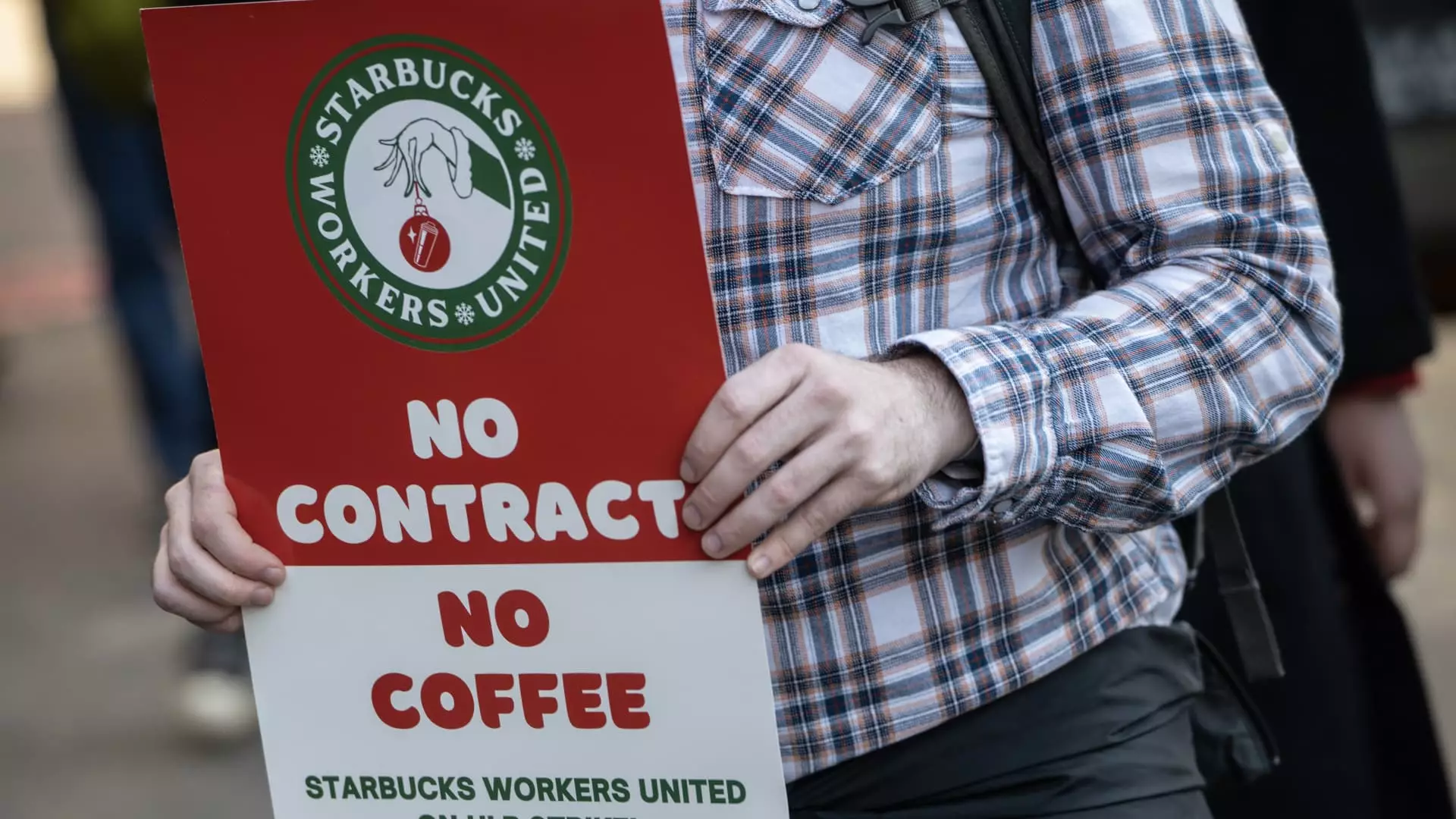In a strategic move to gain leverage as the holiday season approaches, Starbucks baristas in major urban centers like Los Angeles, Chicago, and Seattle are organizing strikes that are set to escalate through Christmas Eve. At the heart of the issue lies the demand for improved pay and benefits from Starbucks, an ongoing struggle that reflects broader trends in labor movements across the United States. The union, Starbucks Workers United, has voiced strong dissatisfaction with what they describe as the company’s “backtracking” on previously agreed-upon frameworks for negotiation, igniting tensions that had briefly thawed earlier in the year.
The current discord between Starbucks and its workforce is particularly striking given the context of recent negotiations. Earlier this year, both parties had collaborated on a “foundational framework” intended to smooth the path toward collective bargaining agreements at individual stores. However, the recent sessions have produced contrasting results. The union reported that during the last bargaining session, Starbucks offered no immediate salary increases, coupled with a modest annual raise of only 1.5%. These proposals have sparked frustration among baristas, who are advocating for a more substantial pay raise of 64% upfront and an overall 77% increase over a proposed three-year contract.
As the strikes loom, consumers can expect potential disruptions in their daily coffee routines. With many Americans taking time off during the festive season for last-minute shopping, the strikes may result in longer wait times at Starbucks locations, stifling holiday cheer for both patrons and baristas alike. The escalation of strikes not only complicates customers’ experiences but also presents significant challenges for Starbucks as it navigates a landscape of declining sales. The company is facing increased competition from other establishments, causing many to speculate about its sustainability in an evolving market.
Starbucks’s struggles are echoed in other sectors, as illustrated by simultaneous strikes from Amazon workers in several locations. This illustrates a growing trend where workers, increasingly dissatisfied with pay and conditions, are uniting for better treatment. As consumer spending shifts and operational costs rise, such labor disputes underscore the difficulties companies face in maintaining worker morale and customer satisfaction.
The ramifications of the upcoming strikes and ongoing negotiations extend beyond just Starbucks. They highlight critical shifts in how labor relations are being approached in various industries across America. If the union’s demands are not met, we could see a ripple effect throughout the service sector that may compel other workers to assert their rights more vocally. As both management and workers grapple with these realities, the outcome of such disputes could reshape the landscape of labor relations in the near future, with implications that resonate far beyond just one company or one group of baristas.


Leave a Reply